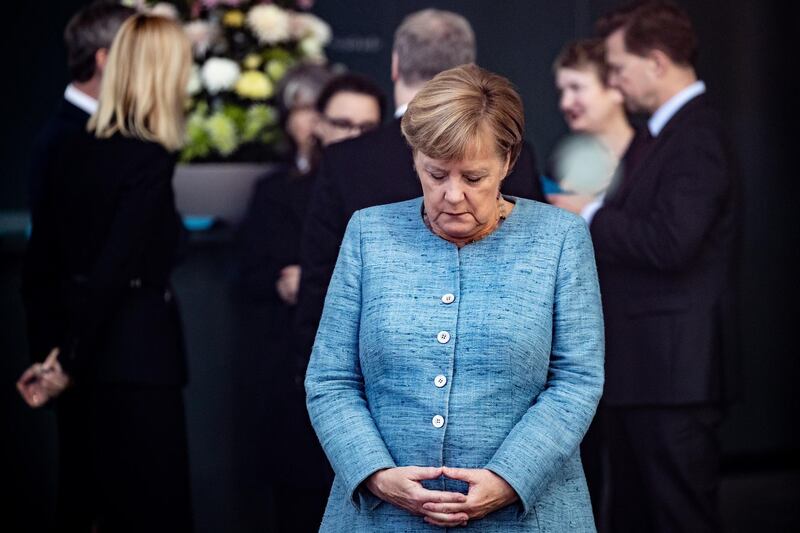Over 48 hours this week, two sharply contrasting images emerged, offering a disturbing reflection of the current state of the world. They served as a stark reminder of two vehemently opposed forces of light and darkness, which are pulling the world in different directions. In Germany, Chancellor Angela Merkel, sometimes dubbed the leader of the free world, announced on Monday that she would be stepping down this year as leader of her CDU party. Meanwhile, thousands of miles away, incendiary demagogue Jair Bolsonaro was elected as Brazil's next president. For years, Ms Merkel has been a beacon of decency in a Europe beset by reactionary nativism. But the ongoing collapse of centrism still found its way to her door. Steve Bannon, the far-right former adviser to US President Donald Trump, recently remarked that "the populist revolt now burns like a prairie fire from Europe to North America to South America". With Mr Bolsonaro's rise and Ms Merkel's simultaneous fall, it is increasingly hard to disagree.
In expediting Ms Merkel's departure, disappointing electoral performances for her ruling coalition in Hesse and Bavaria this month and in federal elections last September mark the end of an era for Germany, Europe and the world. Ms Merkel has already served for an impressive 13 years and intends to stay on as chancellor until her term ends in 2021. But that will depend on whoever her CDU elects to replace her as party leader. The elevation of Jens Spahn or Friedrich Merz – an antagonist and outright opponent respectively – could spell Ms Merkel's accelerated fall.
But the world should remember that the German chancellor has served Europe well while others have sought to derail it. From Brexit to Italy's downturn, to the rise of Mr Trump and the intransigence of Turkish president Recep Tayyip Erdogan and Russia's Vladimir Putin, Ms Merkel has often shouldered the responsibilities of European leadership alone. Today, little happens in the bloc without Berlin's approval and so her demise is a blow to the European project itself.
For many across the world, Ms Merkel’s decision after 2015 to welcome a million migrants to Germany while others in Europe were building fences was her crowning achievement. But for millions of Germans, it was her death knell. Three years on, around the world, the populists are winning. While Ms Merkel opened her arms to those fleeing war, Mr Bolsonaro pronounced them “scum of the earth” and drew more than 57 million votes.
The liberal international order that dominated Europe following the Second World War is crumbling. A fresh spotlight will be shone on French President Emmanuel Macron, who rode a pro-EU wave to victory but has been mired in internal disputes since. There is a danger that someone dealing in hatred and fear might fill the vacuum, jeopardising the European project. And further afield, the populists march on.





